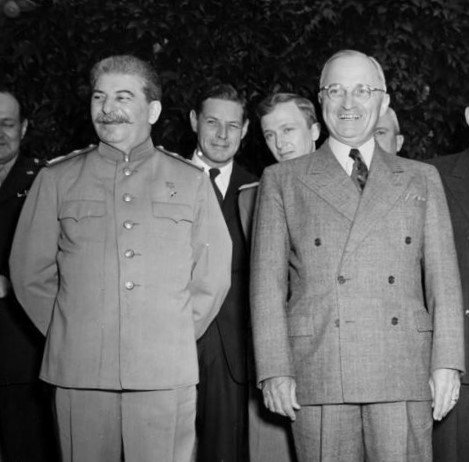(Korean War history)The Division of Korea, 1945-1948 Post #31
Prof. Kathryn Weathersby

The United States and Soviet Union reached a compromise on Korea at the Moscow Council of Foreign Ministers in April 1947 that allowed the Joint Commission to resume its work on 20 May 1947. They agreed that the Commission would not exclude from consultation all parties that opposed the December 1945 agreement on trusteeship, as the Soviets had demanded since March 1946. Instead, I t would consult with any Korean political group as long as it had not “fomented or instigated” active opposition to the work of the Commission.
As I discussed in previous posts, in the spring of 1947 both the Americans and the Soviets wished to present themselves as protectors of national unity, mainly in order to gain support from the German people. Their compromise on Korea may have therefore been mainly political theater aimed at a European audience. Nonetheless, President Truman seemed to be genuinely optimistic about the new agreement, stating publicly that it represented a major step toward a unified and democratic government for all of Korea. US War Secretary Robert Patterson, however, was more realistic. He doubted that the Soviets would actually back down over Korea, pointing out that geographically their position on the peninsula was stronger than that of the US. Moreover, since he was constrained by the Pentagon’s diminishing budget, Patterson argued that the benefits to the US of continued occupation were not worth the expenditure of scarce funds. Nonetheless, Truman and his new Secretary of State, George C. Marshall, believed they could resolve the Korean issue on acceptable terms and without a major commitment of American power.
Complicating that optimism, however, was the reaction of Korean political leaders on the right, who would be disqualified from consultation because of their “active opposition” to trusteeship. The previous month Syngman Rhee had welcomed the declaration of the Truman Doctrine with enthusiasm. Writing personally to the president, Rhee congratulated Truman for his “courageous stand against communism” and urged him to instruct American authorities in Korea to “abandon their efforts to bring about coalition and cooperation between nationalists and communists.” He anticipated the position Truman himself would take two years later, arguing that Korea was as much a “bulwark against communist expansion” as Greece.
But with the agreement of April 1947, it appeared that the US had lost its resolve on Korea. Kim Ku was so alarmed by this development that he announced he would reestablish the Korean Provisional Government and attempt to seize power in its name. In response, US Military Governor Archer Lerch prohibited the KPG from holding political meetings, which prompted the Representative Democratic Council to demand the immediate withdrawal of US forces and the transfer of political authority to an interim government. The Council declared that it would accept neither the compromise conditions for consultation nor trusteeship itself.
In an effort to smooth over this situation, the head of the American delegation to the Joint Commission, Major General Albert E. Brown, met several times with Syngman Rhee. He warned Rhee that if he and Kim Ku continued to criticize the Soviet Union and the trusteeship agreement they would be excluded from consultation. Rhee remained defiant, however. Based on what had happened in northern Korea and Eastern Europe, he predicted with some reason that American participation in the Joint Commission would lead to the creation of a coalition government and an eventual Communist takeover. He also forecast accurately that violent rebellion would break out throughout southern Korea unless the United States clarified the exact nature of trusteeship.
The essential problem was while Korean leaders focused on the future of the peninsula, the US shaped its Korea policy to support its goals in the global contest with the Soviet Union. For this reason, Assistant Secretary of State John Hilldring instructed General Hodge to reject Rhee’s demands, since the United States was committed to fulfilling the provisions of the 1945 Moscow agreement. Washington would favor the creation of a separate government in southern Korea, he explained, only if negotiations with Moscow failed.
In the next post we will examine what happened when the Joint Commission resumed and how the US government interpreted the proceedings as a success of its containment policy.
[Sources: This post relies on James I. Matray, The Reluctant Crusade: American Foreign Policy in Korea, 1941-1950 (University of Hawaii Press, 1985).]